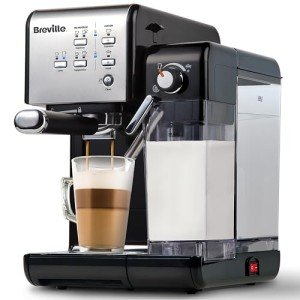Home Use Espresso Machines: A Comprehensive Guide
Espresso machines have actually ended up being a staple in many families as coffee lovers look for to duplicate café-quality brews in the comfort of their kitchen areas. The increase in appeal has caused a diverse market filled with various models, features, and prices. This short article intends to supply an informative introduction of home use espresso machines, helping readers navigate their options efficiently.
Comprehending Espresso Machines
Espresso machines work by forcing warm water through finely-ground coffee under high pressure, resulting in a concentrated coffee beverage referred to as espresso. There are numerous kinds of espresso machines classified based upon their developing methods and level of automation. The most common types include:
- Manual Espresso Machines: These need the user to manage the pressure and water flow, enabling a more hands-on coffee-making experience.
- Semi-Automatic Espresso Machines: These use automatic control over water pressure, while the user by hand grinds and tamps the coffee.
- Automatic Espresso Machines: With the push of a button, these machines automatically manage the flow of water, making it much easier to brew espresso with constant outcomes.
- Super-Automatic Espresso Machines: These all-in-one machines manage grinding, tampering, developing, and even milk frothing, making them perfect for users searching for benefit.
- Pill or Pod Machines: These use pre-packaged coffee pods to produce espresso with minimal effort, however they restrict choice in brewing methods and flavors.
Table: Comparison of Espresso Machine Types
| Type | Control Level | Reduce of Use | Cleaning Level | Ideal For |
|---|---|---|---|---|
| Manual | User-controlled | Moderate | High | Coffee purists |
| Semi-Automatic | Partial automation | Moderate | Moderate | Home baristas |
| Automatic | Completely automated | Easy | Low | Busy people |
| Super-Automatic | Totally automated | Extremely simple | Very low | Convenience applicants |
| Capsule/Pod | Completely automated | Really easy | Really low | Casual drinkers |
Key Features to Consider
When choosing a home use espresso machine, it's necessary to consider various features that can considerably impact the quality of espresso and user experience.
- Pressure: Look for machines that supply at least 9 bars of pressure, as this is considered optimum for developing espresso.
- Boiler Systems: Single vs. dual boiler systems figure out temperature stability and the capability to brew espresso and steam milk simultaneously.
- Grinder: Integrated mills enable newly ground coffee, which improves taste. Consider machines with adjustable grind settings.
- Milk Frother: For those who enjoy cappuccinos and lattes, a built-in steam wand or automatic frother is important.
- Size and Design: Consider your cooking area space and aesthetic preferences. Machines are available in numerous sizes, from compact to large setups.
- Price: Home espresso machines can vary from a few hundred to a number of thousand dollars, so it's important to develop a budget before exploring options.
Benefits and drawbacks of Home Use Espresso Machines
| Pros | Cons |
|---|---|
| Benefit of brewing coffee in the house | Initial financial investment can be high |
| Quality of espresso is often exceptional | Requires some ability, especially with manual machines |
| Ability to explore flavors | Upkeep and cleaning can be labor-intensive |
| Can conserve money in the long run | Not all machines will fit every coffee choice |
Upkeep and Cleaning Tips
Keeping an espresso machine is essential for prolonging its life and ensuring consistent brew quality. Here are some helpful pointers:
- Regular Descaling: Minerals from water can develop in the machine. Descale every 1-3 months, depending on water firmness.
- Daily Cleaning: Rinse portafilters, baskets, and steam wands after each use to avoid coffee oils from building residue.
- Use Filtered Water: This can help in reducing mineral accumulation and enhance the taste of coffee.
- Change Gaskets and Seals: These elements may break gradually and must be changed to preserve pressure and performance.
- Check out the Manual: Each machine has particular care guidelines; following these will ensure durability.
FAQs About Home Use Espresso Machines
Q1: What is the very best budget espresso machine? Energy-Efficient Espresso Machines depends upon individual requirements, but models like the DeLonghi EC155 or the Breville Bambino are popular amongst users for supplying fantastic value. Q2: How long do home espresso machines generally last?With proper maintenance, home espresso machines can last anywhere from 5 to 15 years, depending on the quality of the machine and frequency of use. Q3: Can I make cappuccinos and lattes with any espresso machine?While most espresso machines can make coffees and lattes, having a dependable
steam wand or frother is vital for accomplishing the best milk texture.
Q4: Are super-automatic machines worth the investment?For those who focus on convenience and fast brewing, super-automatic machines can be worth the investment, though they might do not have some customizability in brew strength and flavor. Office Espresso Machines : What kinds of coffee beans are best for espresso?While individual choice contributes, beans identified as" espresso "blends are usually roasted darker, producing abundant tastes and a creamy texture when brewed.
Purchasing a home espresso machine can transform the everyday coffee regimen into something special, raising home brews to café quality. By comprehending the different kinds of machines, essential functions to consider, maintenance requirements, and weighing the
pros and cons, customers can make informed choices that suit their specific preferences. As the espresso culture continues to grow, no matter the choice, every brew can be a tasty experience waiting to be relished.

